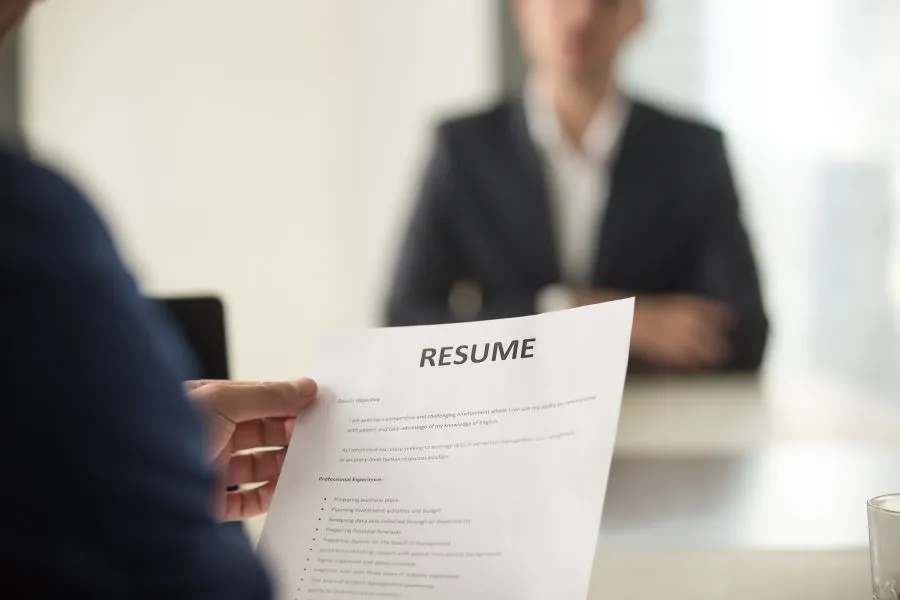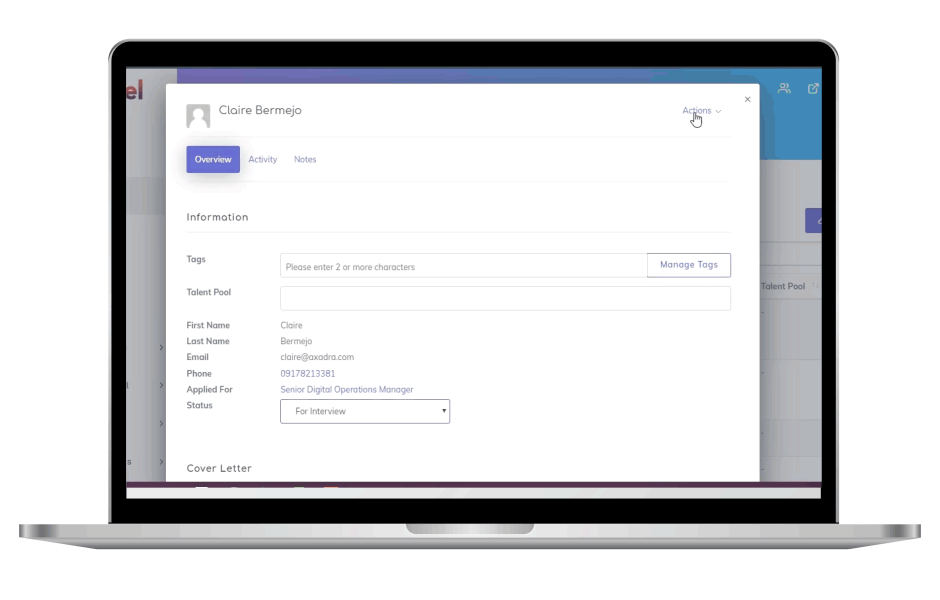Everyone experiences stress – some more than others. Each person also responds differently to stress. Some people can handle grace under pressure, while others buckle under just a small amount of stress. Most are somewhere in between. However, stress does eventually take its toll on everyone, especially employees.
Jobs, by their very nature, can get stressful, especially in a fast-paced work environment. This is why recruitment managers must ensure that candidates can withstand the stress and pressure that comes with the job they’re applying for. Employees who often crack under pressure struggle to complete duties, even if they possess the necessary skills, experience, and knowledge for the job. Some positions, like supervisory roles, face more pressure than others. That’s why it’s essential to identify candidates who can effectively handle stress and remain productive.
In a previous article, we tackled how to interview candidates effectively. But how exactly can you determine the stress management skills of candidates during an interview?
Enter: stress interview questions.
What are stress interview questions and examples?
As the name suggests, stress interview questions test a candidate’s capability to handle stress and perform well under pressure. Oftentimes called stress management questions, these are asked so you can gain a deeper insight into how candidates would react to stressful situations at work.
Stress management questions test a candidate’s ability to handle stress and adverse — and often awkward — behaviors and situations. Sometimes used to intimidate candidates, the interview sometimes even repeats the questions over and over again to test the candidate’s conviction.
Stress interview questions also have a different tone compared to standard interview questions. Common stress interview questions include examples like: “What would you do if you and your boss don’t get along?” and “How would you handle undeserved critique from a colleague or a superior?”
What’s the purpose of stress interviews for candidates?
Adding stress interview questions to your recruitment process can show you whether candidates possess the necessary personality and attitude to handle the expectations and pressures of the job. After all, no one wants to hire a candidate who looks great on paper but cries at the drop of a hat.
Most jobs have stressful aspects, like meeting tight deadlines, presenting decks to managers and clients, and reaching a quarterly goal. Even HR teams have trouble recruiting candidates, which is why tools like ATS and candidate interview scheduling software are extremely helpful. However, not every problem can be solved with tools and advanced technology. Most times, problems are solved through sheer human determination.
With stress interview questions, you can find candidates with good stress management skills and the ability to persevere even when the entire office is metaphorically on fire. You basically want these types of employees because they:
- Come up with solid solutions in times of crisis
- Keep others in the team calm and collected
- Reach objective decisions even when faced with adversities
- Are motivated by health pressure and use it to produce efficient, quality work
- Keep open lines of constructive and transparent communication with colleagues and managers
Top Examples of Stress Interview Questions
The following are excellent stress interview question examples that can help you gauge a candidate’s level of pressure management. You can mix and match any of the stress interview questions according to the position the candidate’s applying for.
- What is the worst thing you’ve heard about working with our company?
This will catch them off-guard, so it’s good to look intently at their reaction when you ask this question. This is a good way to check if negative reviews found online will possibly deter them from joining your organization.
- Do you enjoy working under stress?
Of course, nobody enjoys working under stress but there are those who still thrive even during nerve-racking situations.
- How well do you deal with stress?
A good way to look at their coping mechanisms and to judge whether or not they’re productive in pressured environments.
- What kind of people do you struggle to work with?
Lets you see if they can adapt to different temperaments or easily get unmotivated if they don’t vibe with their colleagues or superiors.
- How do you prepare for an important presentation the day before it’s due?
Offers you a glimpse as to how well they work under pressure, especially if it’s a last-minute presentation to VIP clients, stakeholders, or even the executive board.
- How would you deal with frequent changes at work?
This is a good way to gauge their reactions if ever clients are indecisive about a project’s requirements, they get a new supervisor, or new members join the team.
- How do you ensure that stressful events in your personal life don’t affect your performance at work?
As human beings, it’s perfectly okay to get worked up over personal matters but those troubles shouldn’t bleed into the work or the output they produce. It also shouldn’t affect their professional conduct at work.
- Describe a time you had to make a tough decision. How did you make sure you were objective?
Offers you a glimpse as to how they’ll handle work dilemmas such as firing an unproductive team member or choosing between their subordinates for a coveted promotion.
- How will you deal with a colleague who constantly takes credit for your work?
A good way to assess their interpersonal skills, self-confidence, and conviction to see things through. Their answer will tell you how much they value their work.
- How do you think this interview is going so far?
Lets you know about their personal assessment skills and self-awareness. If they can answer this truthfully, it shows that they’re not undeterred by a stressful, awkward, or intimidating situation.
How to assess candidates using stress interview questions?
Now that you have an idea of the right kind of stress interview questions with the examples listed above, how exactly do you use them effectively to assess a candidate’s level of stress management? Take a look at the tips listed below that will help you leverage your stress management questions to their full potential.
- Being deliberately aggressive or persistent won’t give you a clear idea of how candidates perform or react in stressful situations. Instead, use realistic examples that fit with the position they’re applying for. For instance, if you’re hiring salespeople, ask how candidates would address a rude customer complaint.
- Generic questions such as “How do you handle stress?” will give you equally generic answers. Make sure to ask them specific work examples or past experiences at their previous company when they effectively managed to beat a stressful situation.
- Use a good combination of situational and behavioral stress interview questions and examples. This gives you the chance to find out just how they handled pressure in past positions and how they’ll manage stressful scenarios if hired in their new role.
- Some candidates already prepare answers to stress management questions. They might have even searched up stress interview questions and examples online to come up with appropriate answers. If this is the case, use the interview to gauge their stress management skills. For instance, are they able to remain calm when you ask particularly tough questions or do they fidget, flinch, or look uncomfortable?
- Compare the answers of candidates to common problems or issues related to the position they’re applying. Opt for candidates who not only offer the best solutions, but also those who remain composed even during unexpected circumstances.
- Don’t be quick to reject candidates who seem very nervous at first. Job interviews are already stressful by nature. According to a study by Everest College, 92% of U.S. adults fear something about job interviews. However, if they remain stressed throughout the entirety of the interview, even when you’re not asking particularly stressful questions, you might want to reconsider onboarding them. This especially applies to roles that require frequent socializing.
Signs to look out for when asking stress interview questions
Finally, when conducting stress management questions, it’s good practice to look out for these red flags in their answers to help you better assess candidates and select the best ones to join your company.
- They cause stress. Bad habits like poor time management skills and a tendency to procrastinate put people in unnecessary stressful situations. Go for candidates who get themselves out of those situations, not ones who create them.
- Their body language shows discomfort. If candidates look nervous when you pose tough but realistic scenarios, they’re likely to get stressed when said problems happen on the job.
- They obsess over the stressor. Candidates who fixate on stressors rather than taking action are less likely to overcome the issues that arise.
- They get stressed over minor things. Pay attention to the things that make candidates feel stressed. If they mention little predicaments and daily tasks rather than big, overwhelming challenges, they might not be suitable for managerial roles.
- They never experience stress. Candidates who say they never get stressed might take issues too lightly. This is counterproductive because sometimes, stress can act as motivation too. If they never experience stress, they might not have the sense of urgency required to overcome hurdles.
As a recruiter, you want to hire the best people for each role. Everyone has different ways of handling stress but if you take the time to ask stress interview questions, you’ll gain greater insight into the character and work ethics of a candidate. This will ultimately help you select well-rounded people for your team and onboard employees who are not only good at what they do, but can still perform well under pressure.
With the stress interview questions and examples listed above to guide you, hopefully you can use them to your advantage in the next interviews you conduct.
For more information and inquiries about the best interview practices, don’t hesitate to contact Skillfuel today. We also have an interview scheduling software that lets you easily manage interviews.
















